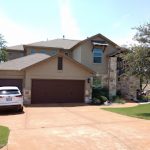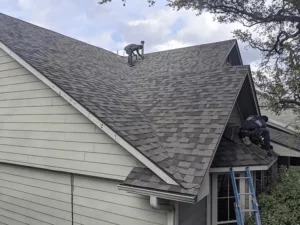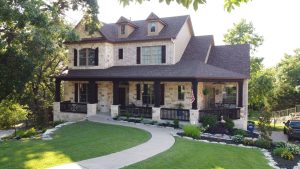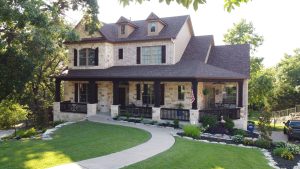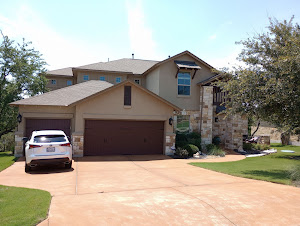
Solar energy has, over the past few years, exponentially risen to prominence as an alternative source of power. The increasing environmental consciousness, coupled with the plummeting cost of solar panels, has contributed majorly to this surge in usage. Solar energy is not only sustainable but also renewable, leading to a significant reduction in electricity bills and providing a viable solution to energy problems. This rise in solar energy usage signifies an important shift in our energy consumption pattern. However, as more and more homeowners adopt this green technology, it’s essential to understand the potential implications of solar panel installation on your roof.
The idea of harnessing the sun’s power is undoubtedly attractive, but the installation of solar panels is not a decision to be taken lightly. One of the most common concerns raised by homeowners is whether these panels could damage their roofs. Given the roof is a critical structural component of any building, understanding how solar panel installation might affect it is of paramount importance. While solar panels offer numerous benefits, poorly executed installations can indeed cause damage. Hence, it’s crucial to understand the potential risk factors and take preventative measures to ensure the installation process does not compromise the structural integrity of your roof.
The Installation Process and Potential Risks
Examine Your Roof to Bear the Weight of the Panels
The process of solar panel installation is intricate and involves several critical stages that, if not performed carefully, can potentially cause damage to your roof. Initially, solar installers examine your roof to ensure it can bear the weight of the panels and the accompanying mounting equipment. Following the evaluation, the team then drills holes into the roof to attach the mounting hardware. This step is crucial and can potentially cause leaks if not done correctly. The solar panels are then affixed to the mounting hardware, followed by the connection of the electrical wiring.
Potential Structural Impacts
Installing solar panels on your roof can have potential structural impacts if not done correctly. The panels themselves, along with the mounting hardware, add extra weight to the roof. In addition, the process involves drilling holes into the roof to secure the panels, which can potentially lead to leaks or structural damage if not sealed properly. Furthermore, the panels cover a large portion of the roof surface, potentially trapping moisture, which can lead to rot and other roof-related issues over time.
The Weight Factor of Solar Panels
When it comes to the weight factor of solar panels, it’s important to understand that different types of roofs have different weight-bearing capacities. Solar panels, aside from being large, are also quite heavy. The added weight of the panels and the mounting equipment can put a significant amount of stress on the roof. While most modern roofs are designed to withstand this additional weight, older roofs, or those in poor condition, may struggle. For this reason, it’s important to have a professional evaluate the condition of your roof before proceeding with the installation of solar panels.
Solar Panels and Roof Material
Asphalt Shingles
Solar panels are designed to be compatible with a wide range of roof materials, however, not all roof materials are created equal. Asphalt shingles, for example, are commonly used in many homes and are generally considered suitable for solar panel installation. These shingles are durable and can withstand the weight and pressure exerted by solar panels.
Roofs Made of Slate or Cedar
On the other hand, roofs made of slate or cedar can be more delicate and may not be able to handle the strain of solar panels. These types of roofs require a more specialized approach to solar panel installation.
Metal Roofs
In the case of metal roofs, they are also often compatible with solar panel installation. The durability and resilience of metal roofs make them ideal for supporting the weight and structure of solar panels. However, the installation process may vary depending on the type of metal roof, whether it’s standing seam or corrugated metal.
Case Study Examples
To better understand the potential for roof damage, let’s consider some case study examples. In one instance, a homeowner with a flat roof experienced leakage after solar panel installation. The source of the leakage was traced back to improperly sealed mounting holes. The roof material, being a type of rubber membrane, required a specific sealing technique which was overlooked during the installation process. In another case, a homeowner with a slate roof reported cracks in the slate tiles after solar panel installation. The problem in this scenario was the excessive weight of the panels that the slate roof couldn’t handle. The roof’s structural integrity was compromised, leading to costly repairs.
These case studies illustrate that while solar panels themselves may not directly damage roofs, the installation process and the compatibility of the roof material can significantly impact the overall health of your roof. It is crucial to engage professionals who have experience with various roof materials and can appropriately assess and carry out the installation process.
Weather Implications
Weather Conditions Potential Threats to Roofs With Solar Panels
In the context of weather implications, solar panels can both positively and negatively affect a roof. Various weather conditions, such as high winds, heavy snowfall, and hail, can pose potential threats to roofs fitted with solar panels. Solar panels are designed to withstand the elements, but in extreme weather conditions, they can become damaged or dislodged, which can cause harm to the roof underneath. Additionally, the accumulation of debris, snow, or ice on the panels can add significant weight to the roof, potentially causing damage. This is a particular concern in areas with heavy snowfall or frequent storms.
Solar Panels as Protective Shields for the Roof
However, on the flip side, solar panels can also act as a protective shield for your roof against harsh weather elements. They can help to prevent the everyday wear and tear caused by exposure to sunlight, rain, and wind. By covering the roof, solar panels can reduce weather-related deterioration, extending the lifespan of roofing materials. It’s also worth noting that the type of roofing material can play a role in how well the solar panels handle weather conditions. As previously mentioned, more robust materials such as asphalt shingles or metal roofs are generally more durable and can better support the weight of solar panels, even in adverse weather. Delicate materials like slate or cedar, however, may not perform as well under extreme weather conditions.
In both scenarios, the key to minimizing potential damage lies in professional installation and regular maintenance. A well-installed solar panel system that is regularly inspected and maintained can withstand weather elements, protect the roof, and provide long-term benefits.
Maintenance and Long-Term Implications
Regular Inspections Requirement
The maintenance of a roof with solar panels is a critical factor in determining whether these installations might damage the roof or not. A well-maintained roof and solar panel system can coexist harmoniously for decades without causing substantial damage to each other. To ensure that the roof and the solar panels are in good condition, regular inspections are required. These inspections can help identify potential issues early on, such as leaks or broken tiles, and address them before they become major problems. In addition, cleaning the solar panels periodically can prevent the accumulation of debris, which could potentially damage the panels and the roof.
The Type of Roofing Material
The type of roofing material, as previously mentioned, can also influence the long-term implications of solar panel installation. Durable materials like metal or asphalt shingles are less likely to be damaged by solar panel installation and maintenance activities. On the other hand, more delicate roofing materials, such as wood or clay tiles, might require more careful handling and regular maintenance to prevent damage.
Terms of the Lifespan of a Roof
In terms of the lifespan of a roof, solar panels can be beneficial. Solar panels can protect the roof from direct exposure to sunlight, which can cause roofs to age and deteriorate faster. This means that solar panels could potentially extend the lifespan of a roof. However, this is contingent upon proper installation and maintenance. If the solar panels are not installed correctly, they could cause leaks or other types of damage that could shorten the lifespan of the roof.
In conclusion, while solar panels can pose certain risks to a roof, these risks can be effectively managed through professional installation and regular maintenance. With the right precautions, the installation of solar panels can be a sound investment that not only generates renewable energy but also potentially extends the lifespan of the roof.
Professional Installation and Its Benefits
Role in Minimizing Any Potential Damage
Professional installation is a crucial aspect when considering solar panels for your roof. It plays a significant role in minimizing any potential damage. Solar panels are heavy equipment that, if not properly installed, can result in structural strain and damage to your roof. Hiring a professional installer not only ensures that the solar panels are installed correctly but also checks for any underlying issues that may affect the roof’s integrity. They are trained to identify problem areas and address them promptly, reducing the chances of damage post-installation.
Determininating the Roof’s Suitability for the Installation
A professional assessment is an essential step before deciding to install solar panels. It helps determine the roof’s suitability for such an installation. Every roof is different – some can handle the weight of solar panels, while others may require reinforcement. A professional assessment will also consider the direction and angle of the roof, as well as the local climate, to ensure optimal performance and longevity of the solar panels. Moreover, professional installers are familiar with the regulations and permits required for solar panel installation in different localities. They ensure that the installation complies with these rules, thus avoiding potential legal issues down the line.
Professional Installers Offer Warranties
Moreover, many professional installers offer warranties, which can provide peace of mind and protection should any issues arise after the installation. All these factors underline the importance of professional installation and assessment in preventing any potential damage to your roof and ensuring that you get the most out of your solar panels. With their expertise, you can be confident that your roof and solar panels are in safe hands.
Conclusion
In conclusion, the article has sought to shed light on the question, ‘Can Solar Panels Damage Your Roof?’. It’s evident that solar panels, by themselves, do not cause harm to your roof. However, the risk of potential damage lies in the installation process. The key to maintaining roof integrity while reaping the benefits of solar energy is professional installation. Experts in the field are equipped with the right skills and knowledge to ensure that the panels are correctly installed. They consider crucial factors such as the roof’s angle, direction, and local climate conditions. Furthermore, professionals ensure all regulations and permits are adhered to, thereby avoiding legal complications.
Balancing the rewards of harnessing solar energy and preserving your roof’s integrity can seem like a daunting task. However, it is a feasible objective when you employ the services of trained installers. They not only conduct a comprehensive assessment of your roof’s capacity to bear the weight of solar panels but also ensure optimal installation for maximum energy production. The benefits of solar energy are indisputable, ranging from cost savings to contributing to environmental conservation. Therefore, the potential risks to your roof should not deter you from installing solar panels.
With the right professionals handling the installation, you can confidently transition into using solar energy with minimal risk to your property. Harness the power of the sun with Anderson Roofing & Construction LLC’s professional solar panel installation—expertly designed to maximize energy efficiency and savings for your home or business.
Name, Address, and Phone
Anderson Roofing & Construction LLC
2503 Claudia Dr, Leander, Texas, 78641, US
737-324-7371
Socials
https://www.facebook.com/AndersonRoofingTexas
https://www.youtube.com/@andersonroofingconstructio3166
